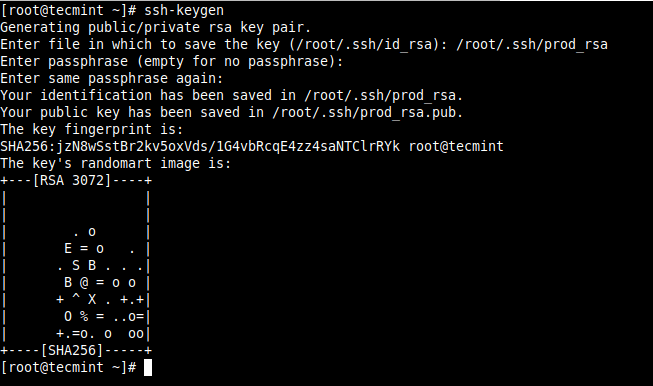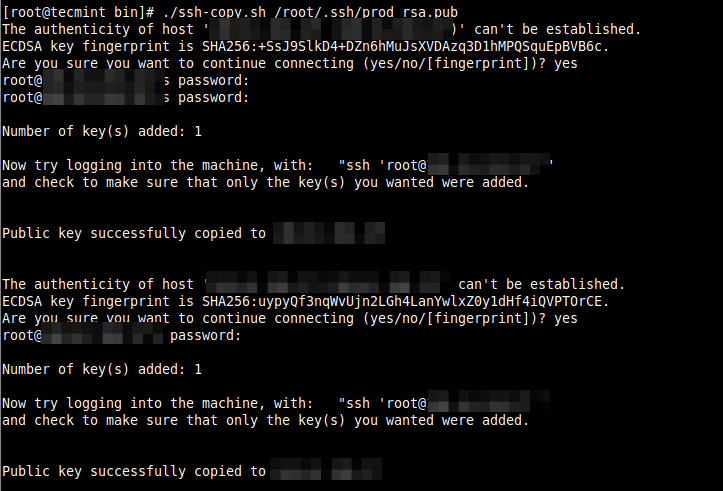SSH Key-based authentication (also known as public-key authentication) allows for password-less authentication and it is a more secure and a much better solution than password authentication. One major advantage of SSH password-less login, let alone security is that it allows for automation of various kinds of cross-server processes.
In this article, we will demonstrate how to create an SSH key pair and copy the public key to multiple remote Linux hosts at once, with a shell script.
Create a New SSH Key in Linux
First, generate the SSH key pair (the private/identity key that an SSH client uses to authenticate itself when logging into a remote SSH server and the public key stored as an authorized key on a remote system running an SSH server) using the ssh-keygen command as follows:
# ssh-keygen

Create a Shell Script for Mulitple Remote Logins
Next, create a shell script that will help in copying a public key to multiple remote Linux hosts.
# vim ~/.bin/ssh-copy.sh
Copy and paste the following code in the file (replace the following variables accordingly USER_NAME – the username to connect with, HOST_FILE – a file which contains the list of hostnames or IP addresses, and ERROR_FILE – a file to store any ssh command errors).
#!/bin/bash
USER_NAME="root"
HOST_FILE="/root/hosts"
ERROR_FILE="/tmp/ssh-copy_error.txt"
PUBLIC_KEY_FILE="$1"
if [ ! -f $PUBLIC_KEY_FILE ]; then
echo "File '$PUBLIC_KEY_FILE' not found!"
exit 1
fi
if [ ! -f $HOST_FILE ]; then
echo "File '$HOST_FILE' not found!"
exit 2
fi
for IP in `cat $HOST_FILE`; do
ssh-copy-id -i $PUBLIC_KEY_FILE [email protected]$IP 2>$ERROR_FILE
RESULT=$?
if [ $RESULT -eq 0 ]; then
echo ""
echo "Public key successfully copied to $IP"
echo ""
else
echo "$(cat $ERROR_FILE)"
echo
exit 3
fi
echo ""
done
Save the file and close it.
Then make the script executable with the chmod command as shown.
# chmod +x ssh-copy.sh
Now run the ssh-copy.sh script and specify your public key file as the first argument as shown in the screenshot:
# ./ssh-copy.sh /root/.ssh/prod-rsa.pub

Next, use ssh-agent to manage your keys, which holds your decrypted private key in memory and uses it to authenticate logins. After starting the ssh-agent, add your private key to it as follows:
# eval "$(ssh-agent -s)" # ssh-add ~/.ssh/prod_rsa

Login to Remote Linux Server without Password
Now you can log into any of your remote hosts without providing a password for SSH user authentication. This way, you can automate cross-server processes.
# ssh [email protected]

That’s all we had for you! If you have any contribution(s) to make particularly towards improving the shell script, let us know via the feedback form below.
